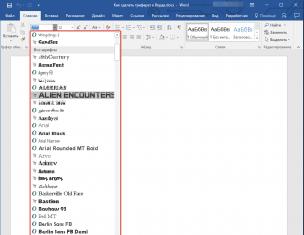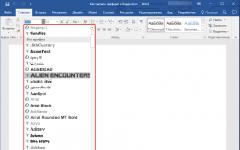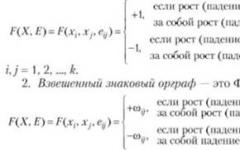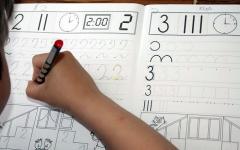1. Выберите из скобок подходящее местоимение. Переведите предложения.
1. Whose slippers are these? Are they … (my, mine) or … (your, yours)? – They are … (her, hers).
2. … (Our, Ours) car is cleaner than … (their, theirs).
3. Look at this girl. She is … (his, him) wife.
4. It’s not … (her, hers) lipstick. … (Her, hers) is darker.
5. … (My, Mine) life, … (my, mine) rules.
6. Was … (your, yours) trip exciting? — … (My, Mine) was boring.
7. Can I use … (their, theirs) hair-drier? — … (Our, Ours) is out of order.
8. Mrs. Novak is a friend of … (his, him).
9. Sometimes she waters … (my, mine) flowers and I water … (her, hers).
10. I remember the street but I don’t remember … (it, its, her, his) name.
2. Употребите подходящее притяжательное местоимение (my, our, your, his, her, its, their).
1. You should play with … own toys.
2. Robert couldn’t use … notebook because it was broken.
3. The funny cat tried to catch … tail.
4. I hope you’ll enjoy … meal.
5. Anna drove … children to school.
6. I had … chest X-rayed.
7. We can bring … own instruments.
8. They often go to the Crimea because they love … nature.
9. She can’t find … glasses.
10. He didn’t give me … number.
3. Найдите ошибки в некоторых предложениях.
Например: Mine brother lives in Turkey. – My brother lives in Turkey. (Мой брат живет в Турции.)
1. It isn’t ours dog.
2. His watermelon was very sweet.
3. How many books are there in hers library?
4. The elephant hurt his leg.
5. Is this room your?
6. It’s my birthday, not yours.
7. Theirs teacher is younger than ours.
8. She is a friend of my.
9. The world is at her feet.
10. Did you like mine present?
Ответы:
1. mine – yours – hers (Чьи это тапочки? Мои или твои? – Её.)
2. Our – theirs (Наша машина чище, чем их.)
3. his (Посмотри на эту девушку. Она – его жена.)
4. her – Hers (Это нее её помада. Её темнее.)
5. My – my (Моя жизнь, мои правила.)
6. your – Mine (Твоя поездка была интересной? – Моя была скучной.)
7. their – Ours (Можно попользоваться их феном? – Наш сломался.)
8. his (Миссис Новак – его друг.)
9. my – hers (Иногда она поливает мои цветы, а я поливаю её.)
10. its (Я помню улицу, но не помню ее название.)
1. your (Тебе следует играть со своими собственными игрушками.)
2. his (Роберт не мог пользоваться своим ноутбуком, так как он был сломан.)
3. its (Смешной кот пытался поймать свой хвост.)
4. your (Надеюсь, вам понравится ваша еда.)
5. her (Анна отвезла детей в школу.)
6. my (Я сделал рентген грудной клетки.)
7. our (Мы можем принести свои собственные инструменты.)
8. its (Они часто ездят в Крым, потому что любят его природу.)
9. her (Она не может найти свои очки.)
10. his (Он не дал мне свой номер.)
1. It isn’t our dog. (Это не наша собака.)
2. Верно (Его арбуз был очень сладким.)
3. How many books are there in her library? (Сколько книг в её библиотеке?)
4. The elephant hurt its leg. (Слон повредил свою ногу.)
5. Is this room yours? (Эта комната твоя?)
6. Верно (Это мой День рожденья, а не твой.)
7. Their teacher is younger than ours. (Их учитель моложе нашего.)
8. She is a friend of mine. (Она моя подруга.)
9. Верно (Мир у её ног.)
10. Did you like my present? (Тебе понравился мой подарок?)
Упражнения составили наши английского языка
1. Напишите личные местоимения (he, she, it, they ), заменяющие существительные.
Н-р: a strawberry (клубника) – it ; balls (мячи) – they .
- cheese 11. a fox
- stars 12. people
- Robert 13. policemen
- grandmother 14. a post-office
- a newspaper 15. a son
- teeth 16. a wife
- a tooth 17. weather
- petrol 18. a king
- Julia 19. animals
- toys 20. a horse
2. Заполните пропуски личными местоимениями (I, we, you, he, she, it, they, me, us, him, her, them).
Н-р: My teacher is very nice. Ilike… (Мой учитель очень хороший. Я люблю ….) – I like him .(Я люблю его .)
- I work for my mother. I help … in the shop. And she gives … some money. (Я работаю со своей мамой. Я помогаю … в магазине. И она дает … немного денег.)
- We have two dogs. We often take … for a walk. We also take a ball and our dogs like to play with … (У нас две собаки. Мы часто берем … на прогулку. Мы также берем мяч, и наши собаки любят играть с …)
- My brother works at the hospital. … is a doctor. (Мой брат работает в больнице. … доктор.)
- My favorite subject is History. … is very exciting. (Мой любимый предмет – история. … очень увлекательна.)
- Tom is a good lawyer. Do you know …? (Том – хороший адвокат. Ты знаешь … ?)
- Look at her. … is so beautiful! (Посмотри на нее. … такая красивая!)
- Where is my notebook? I can’t find … . (Где мой ноутбук? Я не могу … найти.)
- We are going to the beach. You can join … (Мы идем на пляж. Ты можешь присоединиться к …)
- I like Kate’s hair. … is so thick and long. (Мне нравятся Катины волосы. … такие густые и длинные.)
- These are my souvenirs. … bought … in England. (Это мои сувениры. … купил … в Англии.)
3. Замените подчеркнутые слова личными местоимениями.
Н-р: I saw Bob yesterday, but Bob didn’t see me. – I saw him yesterday, but he didn’t see me. (Я видела его вчера, но он не видел меня.)
- Jack and I met Samantha. Samantha gave Jack and me a letter for you. Take the letter .
- Den and Mike are leaving for New York. I am driving Den and Mike to the airport.
- I’m calling Alex. I haven’t seen Alex for ages. And Alex isn’t at school.
- Let’s go to the library with Peter and me . Peter and I need some books in Japanese.
- Here is our cat Felix. Felix is hungry. I will feed Felix .
Ответы:
- it (сыр) 11. it (лиса)
- they (звезды) 12. they (люди)
- he (Роберт) 13. they (полицейские)
- she (бабушка) 14. it (почтовое отделение)
- it (газета) 15. he (сын)
- they (зубы) 16. she (жена)
- it (зуб) 17. it (погода)
- it (бензин) 18. he (король)
- she (Джулия) 19. they (животные)
- they (игрушки) 20. it (лошадь)
- I help her in the shop. And she gives me some money. (Я помогаю ей в магазине. И она дает мне немного денег.)
- We often take them for a walk. We also take a ball and our dogs like to play with it . (Мы часто берем их на прогулку. Мы также берем мяч, и наши собаки любят играть с ним .)
- He is a doctor. (Он доктор.)
- It is very exciting. (Она очень увлекательна.)
- Do you know him ? (Ты знаешь его ?)
- She is so beautiful! (Она такая красивая!)
- I can’t find it . (Я не могу его найти.)
- You can join us . (Ты можешь присоединиться к нам .)
- It is so thick and long. (Они такие густые и длинные.) (hair – исключение.)
- I bought them in England. (Я купил их в Англии.)
- We met Samantha. She gave us a letter for you. Take it . (Мы встретили Саманту. Она дала нам письмо для тебя. Возьми его .)
- They are leaving for New York. I am driving them to the airport. (Они уезжают в Нью-Йорк. Я отвезу их в аэропорт.)
- I’m calling Alex. I haven’t seen him for ages. And he isn’t at school. (Я звоню Алексу. Я не видел его вечность. И он отсутствует в школе.)
- Let’s go to the library with us . We need some books in Japanese. (Пойдем в библиотеку с нами . Мы ищем кое-какие книги на японском.)
- Here is our cat Felix. It is hungry. I will feed it . (Вот наш кот Феликс. Он голоден. Я покормлю его. )
1. Fill the gaps with personal or reflexive pronouns.
1 . He is quit right, I agree with … completely.2 . I looked at … in the mirror and left the house in a very good mood.
3 . “Who is it?” - “It’s … may I come in?”
4 . Mr. Lloyds is very fat … weighs over a hundred kilos?
5 . … introduced his wife to the quests.
6 . Where shall … meet, Bob?
7 . James took the book and opened ….
8 . We don’t dress … for dinner here.
9 . I taught … to play the quitar.
10 . Selfish people only care about …
2. Put “some”, “any” or “no”.
1 . He does his homework without … difficulty.2 . This yeas all the apples are red, we are going out this morning to pick …
3 . I’d like … water, please.
4 . There weren’t … tomatoes left.
5 . I won’t go with you. I have … free time.
6 . There aren’t … students at the moment.
7 . Sorry, I have … matches.
8 . Do you have … money?
9 . The box was empty. There was apples in it.
10 . Pour me … milk, please.
3. Translate the sentences into English.
1 . Она ничего не сказала.2 . Он посмотрел на нее с удивлением.
3 . Она не захотела пойти с ним.
4 . Я попросил его налить немного молока.
5 . Когда ему было 3 года, он мог сам одеваться.
6 . Простите, но у меня нет времени.
7 . Какая красивая картина! Она твоя?
8 . Возьми свою чашку. Эта чашка - моя.
9 . Его мнение отличается от моего.
10 . Сегодня вечером придет кто-нибудь?
4. Complete the sentences using possessive pronouns (my, your, his, her, our, their).
1 . I left … car in the garage.2 . Mary hung … coat on the peg.
3 . Jack had … hair cut.
4 . Neil and David ate … supper.
5 . I hope you enjoy … holiday.
6 . We’ll invite you round to … house sometime and complete these by addig a possessive with own.
7 . You must make up … own mind.
8 . The children had to cook … own supper.
9 . Bill borrowed Jenny’s car … own can was being repaired.
10 . I’ll bring … own sheets and towels.
11 . Every dog had … own special basket to sleep in.
12 . You should do … own washing up.
Правильные ответы:
1. Заполните пропуски личными или возвратными местоимениями.
1. him | 2. myself | 3. me | 4. he | 5. he | 6. we | 7. it | 8. ourselves | 9. myself | 10. themselves2. Поставьте “some”, “any” или “no”.
1. any | 2. some | 3. some | 4. any | 5. no | 6. any | 7. no | 8. any | 9. no | 10. some3. Переведите предложения на английский язык.
1. She said nothing.2. He looked at her with surprise.
3. She didn’t want to go with him.
4. I asked him to pour some milk.
5. When he was 3 years old, he could dress him self.
6. Sorry, but I don’t have any time.
7. What a nice picture! Is it yours?
8. Take your cup. This one is mine.
9. His opinion differs from mine.
10. Will anybody come tonight?
4. Закончите предложения, используя притяжательные местоимения (my, your, his, her, our, their).
1. my | 2. her | 3. his | 4. their | 5. your | 6. our | 7. their | 8. their | 9. his | 10. my | 11. its | 12. yourЛичные местоимения в английском языке встречаются в двух падежах – именительном (nominative case) и объектном (objective case). В данной статье Вы познакомитесь и с теми, и с другими, посмотрите таблицы и выполните упражнения на личные местоимения. Поговорим вначале о личных местоимениях в nominative case – именительном падеже.
Personal pronouns in nominative case.
Рассмотрим таблицу:
Вроде бы, все просто, но давайте сделаем некоторые уточнения.
- Роль в предложении.
Личные местоимения в nominative case в английском чаще всего выполняют роль подлежащего :
She lives in Bristol. – Она живет в Бристоле
I am not scared. – Я не напугана.
Следует также отметить, что personal pronouns в именительном падеже могут выступать в роли именного сказуемого :
It was she who did it. – Это была она, кто сделал это.
В подобных случаях в более неформальной речи допустимо использование местоимений в объектном падеже:
It was her , who did it.
- Род личных местоимений.
Некоторые личные местоимения отчетливо указывают на род. Это местоимения he - мужской род (одушевленное) и she - женский род (неодушевленные). Местоимение it употребляется вместо всех неодушевленных предметов, а также животных и слова baby (младенец).
Molly sees a cat. It is black. – Молли видит кота. Он черный.
Where is the baby. It’s with me. – Где ребенок? Он со мной.
В некоторых случаях многие предметы могут одушевляться (особенно в художественной литературе) и заменяться на she и he. Подробнее читайте в статье про в английском языке.
- Местоимения I и you.
Местоимение I всегда пишется с большой буквы независимо от места в предложении.
Вы, должно быть, заметили, что местоимение you переводится как ты и вы и всегда имеет форму множественного числа. На самом деле, местоимения ты в современном английском языке нет. Раньше оно было и звучало как thou . Сегодня подобную форму можно встретить разве что в стихах. Запомните: в английском ко всем принять обращаться на вы и использовать при этом местоимение you, имеющее множественное число.
You are a good boy. – Ты хороший мальчик.
Заметьте: после you стоит глагол во множественном числе – you are.
Похоже, про личные местоимения в именительном падеже я сказала все, давайте выполним несколько упражнений на закрепление. Ответы Вы найдете в конце статьи.
Упражнения на личные местоимения he, she, it и пр.
Упражнение 1. Какими личными местоимениями можно заменить следующие существительные? Заполните таблицу.
Kate, my parents, auntie, Jacob, car, sister, cousins, two chairs, chair, the Queen, Ann, brother, uncle, Bill, cat, table, my father, my house, cars, balls.
Упражнение 2. Add he, she, it, we, or they
- Molly is very nice. _____"s my best friend.
- Molly and I aren"t English. ______"re from Sydney.
- Greg is my brother. ______"s 25 years old.
- Greg and Alison are married. _______"ve got two children.
- Emily is 22 years old. ______"s a nurse in
Упражнение 3. Write in he, she or they.
- This is Maria. _____ is having lunch in the canteen.
- Look at the children! _____ are playing football in the snow!
- Vanya is my friend. ______ is riding a bike now.
- Look at Pavel"s parents. _________ are reading a book.
- Lisa is Pavel"s friend. Listen! ______ is singing!
Личные местоимения в объектном падеже (Objective Case).
Объектный падеж английских местоимений соответствует косвенным падежам русского языка. Рассмотрите таблицу.

Несколько примеров:
Ask him to stay for dinner. – Попроси его остаться к обеду.
Give him a pen. – Дай ему ручку.
Don"t speak about him like this. – Не говори о нем так!
This was done by him . – Это было сделано им.
Сложностей в использовании объектного падежа местоимений у Вас возникнуть не должно. Единственный момент – использование I и me.
I или me?
Обычно данные местоимения используются в соответствии с правилами: I в именительном падеже, me – во всех остальных.
I give you a present. – Я дарю тебе подарок.
You give me a present. – Ты даришь мне подарок.
- Однако, если I стоит в именительном падеже и играет роль сказуемого – здесь возможны оба варианта.
It"s I / It’s me – Это я!
Первый вариант более книжный, второй – разговорный.
- В структурах сравнения также можно использовать и I, и me:
Molly is as old as I / as old as me.
Molly is older than I /than me.
- В кратких ответах используются оба местоимения.
- I или me после and?
Оба варианта возможны, хотя выражение you and I уже устарело, Вы будете выглядеть несколько консервативным, употребляя его. Впрочем, сударь (сударыня), eсли Вам угодно … употребляйте.
Упражнения на личные местоимения в объектном падеже.
Упражнение 4. Fill in the gap with the correct object pronoun. Заполните пропуски, используя личные местоимения в объектном падеже.
- Who is that lady? — Why are you looking at __________?
- Do you know that young handsome man?-Yes, I study with __________.
- Please, listen to _______. I want to express my point of view.
- These puppies are so nice! Do you want to look at ______.
- We like this house. We"re going to buy _________.
- He can"t see _______ because we are sitting in the last row.
- Where are the keys to our flat? I can"t find _______.
- Where is Ann? I want to talk to _________.
- This snake is poisonous. I"m very afraid of _______.
- Don"t wait for _______ for dinner. I"ll return very late at night.
- He left Polotsk long ago. I haven"t seen _______ since.
- You can fully rely on _______. We won"t let you down.
Упражнение 5. Fill in the gap with the correct object pronoun.
My husband and I are very lucky. We have many close friends in this city, and they are all interesting people.
Our friend Andrew is a scientist. We see (1) _____ when he isn"t busy in his laboratory. When we get together with (2) _____, he always tells (3) ______ about his new experiments. Andrew is a very close friend. We like (4) _______ very much.
Our friend Maggie is an actress. We see (5) _______, when she isn"t making a movie in Hollywood. When we get together with (6) _______, she always tells (7) ______ about her life in Hollywood. Maggie is a very close friend. We like (8) ______ very much.
Our friends Bobby and Marlin are journalists. We see (9) ______,when they are not traveling around the world. When we get together with (10) ______, they always tell (11) _____ about their meetings with famous people. Bobby and Marlin are very close friends. We like (12) ____ very much.
Упражнение 6. Fill in the suitable pronouns.
- Jack is hungry. Bring ________ a sandwich.
- Ann is ill. Take _______ these flowers.
- Fred and Jane are in the country. Write ________ a letter.
- I am thirsty. Bring _________ a bottle of Coca-Cola.
- Jimmy is in class. Give __________this book.
- The children are hungry. Bring ________ these red apples.
- Alan is at home. Ask ________ to come to the yard.
- We are at table. Give _______ tea and cakes.
Ответы:
Упражнение 1.
Упражнение 2.
1 she, 2 we, 3 he, 4 they, 5 she.
Упражнение 3.
1 she, 2 they, 3 he, 4 they, 5 she.
Упражнение 4
1 her, 2 him, 3 me, 4 them, 5 it, 6 us, 7 them, 8 her, 9 it, 10 me, 11 him, 12 us
Упражнение 5.
1 him, 2 him, 3 us, 4 him, 5 her, 6 her, 7 us, 8 her, 9 them, 10 them, 11 us, 12 them
Упражнение 6.
1 him, 2 her, 3 them, 4 me, 5 him, 6 them, 7 him, 8 us
Pronouns.
Упр. 1.1. Вставьте подходящие по смыслу личные местоимения.
1. Ben is a little boy. … is six.
2. Jane is a house-wife ( домохозяйка ). … is lazy ( ленивая ).
3. Max is a soldier. … is brave.
4. Lily is a young woman. … is very beautiful.
5. Alice is late. … is in a traffic jam (в дорожной пробке ).
6. Nick and Ann are far from Moscow. … are on a farm.
7. This is Ben"s room. … is nice.
8. These are new books. … are interesting.
9. This is Elsa. … is a student.
10. Nick and Max are students. … are students of a Moscow university.
11. The rooms are small but … are light and warm.
12. The new flat is comfortable but … is far from the university.
13. Jack has many French books. … likes to read French very much.
14. Hans is a new student. … is German.
15. Alice and Jane are new secretaries. … are not lazy.
Упр. 1.2. Вставьте соответствующие личные местоимения в предлагаемых ответах на вопросы.
1. Is your house new? – Yes, … is.
2. Are the students at the English lesson now? - Yes, ... are.
3. Is your university in Green Street? – Yes, … is.
4. Are Helen and Bess your sisters? – Yes, … are.
5. Is Ben"s sister an engineer? – Yes, … is.
6. Are the pencils red? – No, … are not.
7. Is this room comfortable? - No, … isn"t.
8. Are the textbooks on the shelf? - Yes, ... are.
9. Does the girl often visit the museum? – No, … doesn"t.
10. Does this pen write well? – Yes, ... does.
11. Is Ben on holiday now? – No, … isn"t.
12. Is Helen nice? - Yes, … is.
13. Are you an engineer? - Yes, … am.
Упр. 1.3. Замените выделенные слова личными местоимениями в объектном падеже.
1. I like Nick .
2. We like Bess.
3. He likes ice-cream .
4. Can you show the pictures to Ben ?
5. You can tell Helen my e-mail address.
6. Are you interested in football ?
7. I want to buy two bottles of milk for Bess .
8. Do you want to play tennis with Ben ?
9. We must speak to Nick .
10. You should invite Helen and Bess to your house for dinner.
11. Do you know Mary ?
12. Tell Nick about your plan .
13. I see my friends every day.
Упр. 1.4. Вставьте подходящие по смыслу личные местоимения в объектном падеже.
1. Where is Nick? I want to play tennis with … .
2. Bess is here. Do you want to speak to … ?
3. My sister speaks French. She learns … at school.
4. Look at that man. Do you know … ?
5. Do you want to read this newspaper? I can give … to … .
6. If you see Ben and Bess, please, don"t tell … anything.
7. We want to phone Helen and invite … to the party.
Упр. 1.5. Замените выделенные слова личными местоимениями в именительном или объектном падеже.
1. The vase is on the table.
2. Mother often sends Ben to buy milk.
3. Are Bess and Helen ready to do the work ?
4. Nick and Ben spend their holidays at the seaside.
5. The man is in the park.
6. The managers are not at work now.
7 . Helen and I are good friends.
8. Is Ben at the lesson now?
9. Where is the calculator ?
10. The newspapers are on the table.
11. The child is in the garden with his mother.
12. Our parents are always glad to see us.
13. My brother and I are good football players.
14. Bess knows Ben.
15. I see the picture very well.
16. The students have lectures every day.
17. The boy plays football every Sunday.
18. The teacher asks the students .
19. The students write tests every week.
20. Look at the picture !
21. I have the book at home.
22. Max wants to speak to Helen.
Упр. 1.6. Замените выделенные слова притяжательными местоимениями.
1. This is Ben"s room.
2. This is Helen"s hat.
3. Here is my parents" house.
4. Nick"s mother is an economist.
5. Where is my brother"s bag?
6. I like Helen"s car.
7 . Ann"s books are on the table.
8 This student"s sister is my friend.
9. My sister"s house is not far from Ben"s house.
10. Where is the children"s room?
11. Ann"s brothers study at the university.
12. These boys’ fathers don"t work at the factory.
13. Here is my sister’s flat.
Упр . 1.7. Вставьте притяжательные местоимения .
1. Is your bag new? - Yes, … bag is new .
2. I like … hat, Ann.
3. Don"t plant this tree! … branch is broken.
4. Max, you have a new job. Do you like … new job?
5. … friends always tell me everything.
6. Our dog likes to run after ... tail.
Упр. 1.8. Измените следующие предложения по образцу, употребляя абсолютную форму притяжательных местоимений.
Образец :
This car is my car.
This car is mine.
1. This calculator is my calculator.
2. Is this bicycle your bicycle?
3. These hats are her hats.
4. This room is their room.
5. This dog is our dog.
6. My flat is more comfortable than your flat.
7. Our house is near their house.
8. Which of the dictionaries is your dictionary?
9. Is this book his book?
10. Whose cat is this? Is it her cat or his cat?
Упр. 1.9. Выберите подходящее притяжательное местоимение.
2. This is our car. It is (our, ours).
3. These are Mary"s books. They are (her, hers).
4. White is (my, mine) favourite colour.
5. You can"t have this book. It is not (your, yours).
6. (Her, Hers) house is big.
7. Is this (your, yours) coat? - No, it is not (my, mine).
8. Are these your friends" books? - Yes, they are (their, theirs).
9. That is (our, ours) house. It is (our, ours).
Упр. 1.1 0 . Измените предложения по образцу, употребляя указательные местоимения во множественном числе. Сделайте другие необходимые изменения.
Образец:
This girl is a student.
These girls are students.
That boy is brave.
Those boys are brave.
1. This book is French.
2. This girl is in the garden.
3. That map is old.
4. This student is from Great Britain.
5. That flower is beautiful.
6. This is my bag.
7. This is a French text.
8. That room is nice.
9. This film is interesting.









